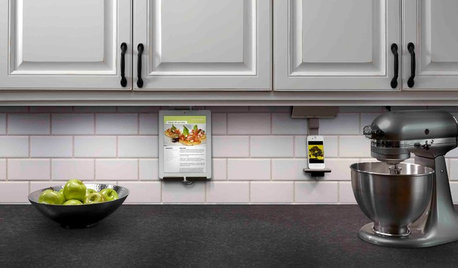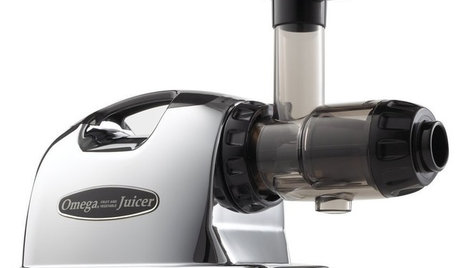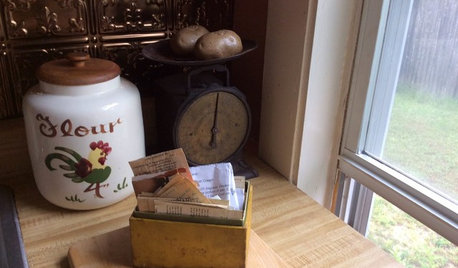Lowering Cholesterol
silversword
15 years ago
Related Stories

KITCHEN DESIGNHouzz Call: What’s Cooking in Your Kitchen?
Most of us turn to recipes, videos and culinary shows when we cook. Where do you set your cookbook, tablet or TV screen?
Full Story
PRODUCT PICKSGuest Picks: Get Juicing
Stay hydrated and healthy with these tools and accessories for juicing fruits and vegetables right at home
Full Story
KITCHEN OF THE WEEKKitchen of the Week: Fans of Traditional Style Go For a ‘Mad Men’ Look
The TV show inspires a couple to turn their back on the style they knew and embrace a more fun and funkier vibe in their kitchen
Full Story
HEALTHY HOMEGet the Lead Out: Lead Safety at Home
Keep your family safe by properly testing for and dealing with lead in old painted surfaces, water and soil
Full Story
BATHROOM DESIGNSpotted: Refrigerators in the Bathroom
You read that right. Before you protest, here are seven good reasons why people are chilling in the bath
Full Story
MOST POPULAR7 Ways to Design Your Kitchen to Help You Lose Weight
In his new book, Slim by Design, eating-behavior expert Brian Wansink shows us how to get our kitchens working better
Full Story
KITCHEN DESIGN5 Home Cooks Share Their Favorite Family Recipes
Peek inside the kitchens of these Houzz users and learn how to cook their time-tested, passed-down dishes
Full Story





lucy
apollog
Related Professionals
Graham Landscape Architects & Landscape Designers · Brooklyn Center Landscape Architects & Landscape Designers · Westwood Landscape Contractors · Apollo Beach Landscape Contractors · Brooklyn Park Landscape Contractors · Pleasant Grove Landscape Contractors · Saint George Landscape Contractors · Seymour Landscape Contractors · San Pablo Landscape Contractors · Buffalo Carpenters · Whitney Carpenters · Danbury Roofing & Gutters · Hudson Roofing & Gutters · Manchester Roofing & Gutters · St. Louis Roofing & Guttersmaifleur01
rusty_blackhaw
herbalbetty
silverswordOriginal Author
gringojay
apollog
silverswordOriginal Author
maifleur01
lucy
gringojay
maifleur01
lucy
maifleur01
apollog
lucy
maifleur01
lucy
maifleur01
lucy
maifleur01
lucy
maifleur01
lucy
apollog
lucy